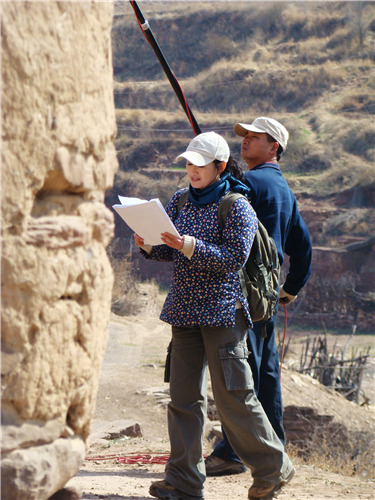Blind Devotion


"When a blind musician reached a family's gate he would place a bench he carried with him on the ground, then sit on it and begin singing. In return the family would usually give him a meal or a little money.
"When the musicians traveled in groups, as they proceeded from place to place each would have his hand placed on the shoulder of one of the others, and a man with sight led them all. They often gave more than 200 performances a year. Given that they were blind and poor it was difficult for them to find a wife."
In addition to performing individually, the blind musicians also formed groups to perform together. A small group would consist of three or four, and a bigger one of six or seven. The percussionist usually sat in the middle, and the others playing stringed instruments such as the huqin (a two-stringed bowed instrument), the sanxian (a three-stringed plucked instrument) and bamboo flute, sat on either side.
When the Chinese Communist Party set up the Blind Men's Publicity Team in 1938, the aim was for it not only to solidify patriotic fervor by performing local folk songs and new works the team had written about the war against the Japanese, but also to carry out various clandestine military activities. These songs vaunted the deeds of the Red Army, its heroic soldiers and the civilians who aided them in fighting their enemies.
After war was won and the People's Republic of China was founded in 1949, the Zuoquan Blind Men's Publicity Team not only remained intact but thrived with government support. Of course, all of the original members have now passed on, but the arrival of new members over the years ensured that the troupe would not simply die, and it now has seven musicians, most aged 50 or older. Some were born blind and others lost their sight as a result of accidents or illness.




































